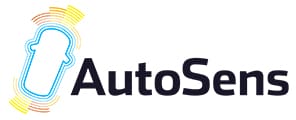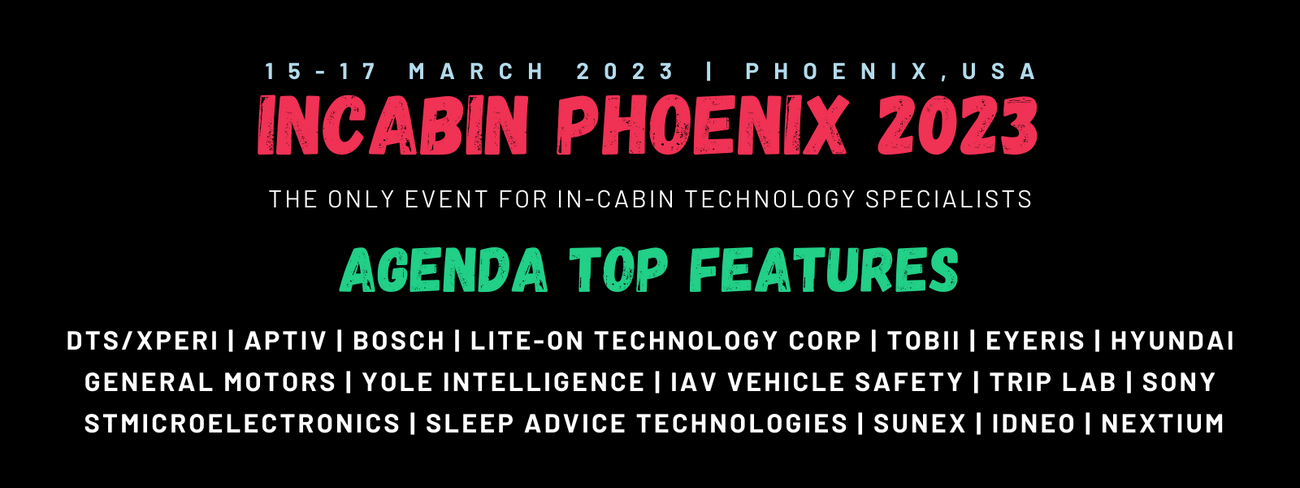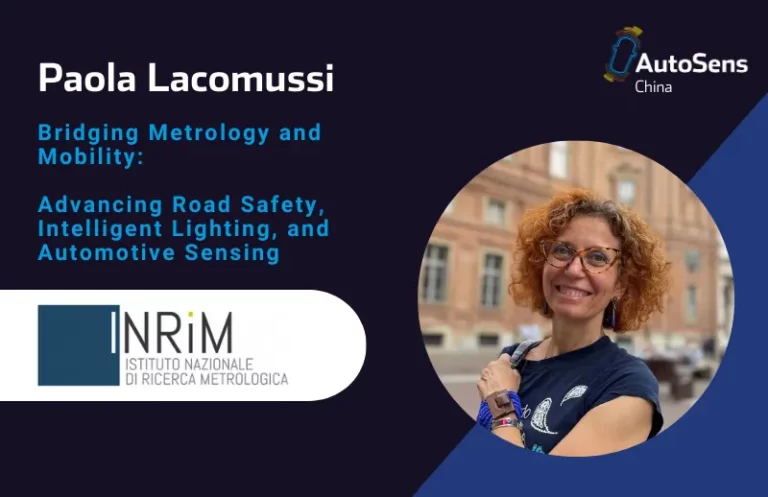The automotive cabin interior has become the focus for automotive safety, new technology and creativity. This technical and comprehensive InCabin conference will explore new upcoming technologies and regulations and how they interact to shape the user experience, connectivity, safety and monitoring. Technical presentations will evaluate how monitoring can be used for safety; hear the latest health and drowsiness monitoring research and be at the forefront with the latest HMI trends and technologies for the cockpit. These and other industry-wide factors that will shape the future of the technology of the automotive interior – make sure you join us at InCabin Phoenix (15-17 March 2023), the only event at the forefront of this exciting new era of intelligent interiors.
Future trends and technologies for HMI and the user experience
Whilst there is a lot of focus in improving safety with in-cabin technologies, the user experience and comfort in the cabin is also going to be a key differentiating factor for OEMs. The Chief ADAS/AD Technology and Innovation Expert, Dr. Peter Amthor at Harman will explore the road ahead, as he sees it, with respect to building an immersive car and delivering personalised experiences with machine learning and sensor technologies.
Another view is that there should be “no place like my car” and someone’s vehicle, and specifically the automotive cabin, will be the “third space”. The trends that will define this third space were explored in a recent FOCUS session and will be expanded upon by Adrian Capata of DTS/Xperi.
HMI will also be an important factor in ensuring that these systems can optimise in-cabin safety and one key question and challenge of today is how to re-engage a driver when they are noticeably distracted. Dave Mitropoulos-Rundus, Senior Engineer, Hyundai American Technical Center, will explore the active ongoing research to understand the most effective way to reorient a driver’s attention.
Drowsiness and driver impairment prediction monitoring
Driver monitoring systems are already in production cars and are still the focus for new technologies and auto manufacturers. Advancements in autonomous car technology has firmly put the focus on safety and this goes hand in hand with in-cabin monitoring.
With this advancement of technology, future regulations and customer expectations, the focus is now being directed at the ways that driver monitoring can be enabled to enhance the safety of all passengers and other car users. Detlef Wilke from Smart Eye will be exploring the latest research in intoxication research and what opportunities there are to use DMS technology to enhance road safety. With European laws regarding drowsiness monitoring also coming into play imminently, research is now looking at sleep prediction and Riccardo Groppo from Sleep Advice Technologies will be exploring this subject further.
There are differing opinions on the best way to detect drowsiness and some think that vision based AI is actually a dangerous approach for drowsiness detection and Dr Trefor Morgan of Optalert will explore the pitfalls encountered and misconceptions surrounding this area. Another type of drowsiness detection system will be demonstrated by Nextium by IDNEO, which is one based on a 3D iToF sensor that should provide more time for the system to act on initial signs of drowsiness before they are actually visible to a vision system.
Other sessions on the topic include:
- Health and impairment detection through cognitive states monitoring – development and validation challenges – Clémentine François, Biomedical Engineering Manager, Tobii AB
- Mitigating unsafe driving situations using interior monitoring systems – Fabiano Ruaro, Product Manager for Interior Monitoring Systems, Bosch
Next steps for in-cabin technologies, moving beyond driver monitoring
Moving from DMS and OMS is a general trend in the in-cabin space and one that was discussed in detail at InCabin Brussels, and this conversation will continue at InCabin Phoenix, with representatives from Aptiv, General Motors and Veoneer coming together on a panel to discuss what is next for in-cabin technology. They will look at how the industry is changing and what the trends are expected to be for regulations, technologies and industry collaboration moving forward.
Different sensors come into play when monitoring occupants inside the cabin and you will hear more about wider field of view sensors and their optical design with Immervision, plus more about the benefits of having radar in the cabin from Microtech Ventures. Ensuring a reliable in-cabin monitoring system is also critical for driver monitoring and more so for occupant safety and Sony Depthsensing Solutions will explore how this can be achieved via multi-sensor fusion.
In-cabin security and privacy considerations
With the further advancements and usage of In-Cabin monitoring and connectivity inevitably comes the questions surrounding security and privacy. Car systems are becoming more vulnerable to external security risks as the connectivity of vehicles grows. Charles Kingston, STMicroelectronics will be exploring this issue with particular emphasis on cybersecurity of in-cabin image sensors. Privacy and security concerns due to the use of in-cabin cameras are also of increasing concern, and Kai-Chun Wang, iCatch Technology will be looking at event based DMS with dynamics vision sensors to overcome privacy considerations.
We’ll be rocking sunny Phoenix this March with star speakers from companies covering every aspect of in-cabin technology, which you’ll be able to enjoy across two stages. Explore our Live Agenda and start saving your unmissable sessions.







